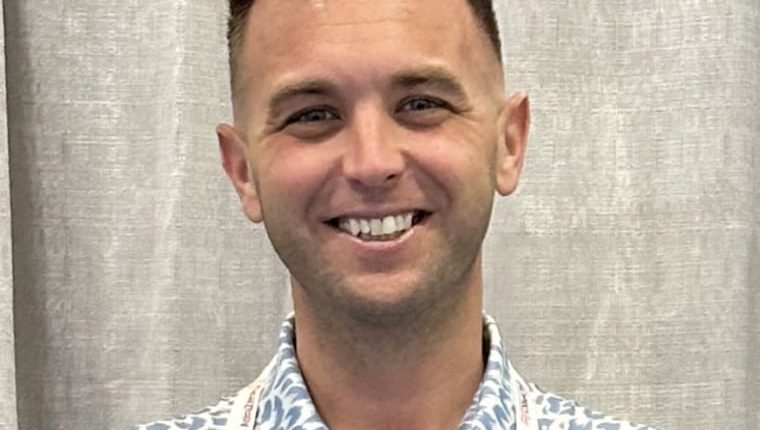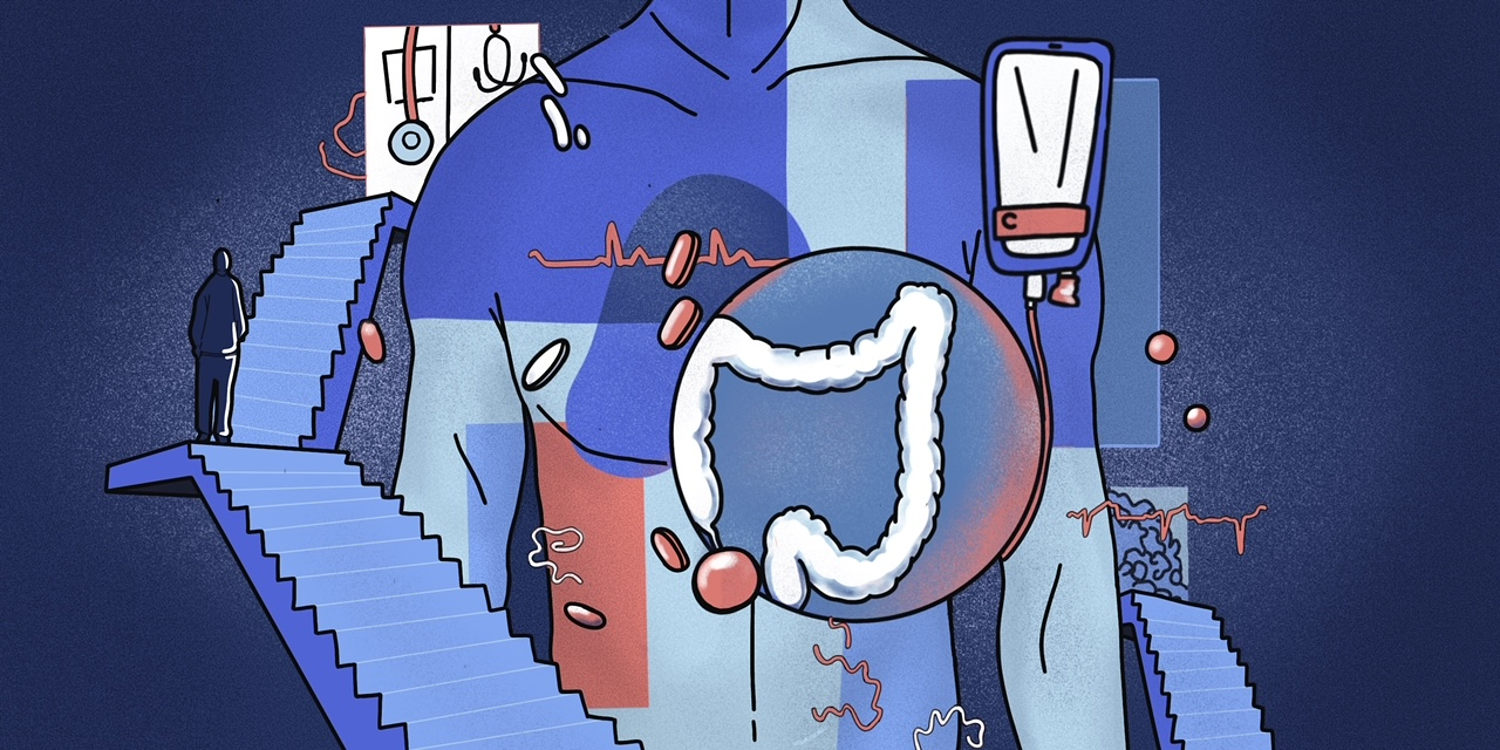When Kyle Pukylo started feeling stomach pain, he struggled to find a doctor who could see him in person on short notice in Lakeland, Florida, where he lives. So he booked a telehealth session.
“They said, ‘Yeah, there’s a stomach bug going around. Just give it a few days,’” Pukylo said.
That was in May 2021. A month later, a nurse practitioner examined him in person and recommended that he go to the emergency room. A CT scan revealed a large tumor that had spread to Pukylo’s liver. He was diagnosed with Stage 4 cancer.
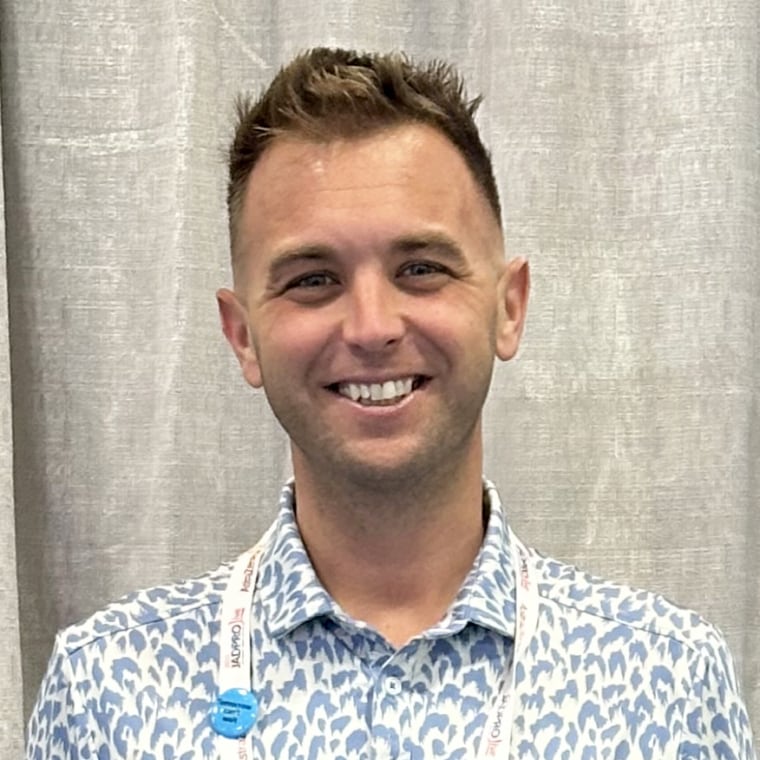
“They were surprised that I was still standing and alive,” he said. “They were scared that I literally could die any moment.”
Pukylo is one of five people who spoke to NBC News about their experiences getting colorectal cancer — a term that includes both colon and rectal cancer — in their 20s or 30s. All received diagnoses within the last seven years, and many said they ignored early indicators because of their age. Others said health care providers shrugged off their concerns for the same reason.
Rates of colorectal cancer have risen among young adults in the U.S over the last few decades. The proportion of people diagnosed under age 55 rose to 20% in 2019, up from 11% in 1995, according to the American Cancer Society. Rates among people ages 65 and up, meanwhile, have declined since 2011.
The society estimates that there will be 19,550 new cases of colorectal cancer among adults under 50 this year, whereas its 2017 estimate was 14,200 cases.
Dr. John Marshall, chief of hematology and oncology at MedStar Georgetown University Hospital, said that 30 years ago, he didn’t see any colorectal cancer patients under 50 at his clinic. Today, the group makes up more than half of the patients, he said. Many were healthy and active before their diagnosis, Marshall added, with no family history of the disease.
“It’s the same kind of cancer but shifted earlier in age,” he said.
Doctors and researchers can’t fully explain the trend. And a combination of factors — including that young people don’t get regular screenings, are more likely to ignore symptoms and may not see a doctor regularly — can make diagnoses challenging.
A survey from the Colorectal Cancer Alliance showed that 75% of young colorectal cancer patients and survivors visited at least two physicians before getting diagnosed, and 40% said their providers dismissed their symptoms and concerns.
Shauna Nguyen wonders what might have happened if a nurse practitioner had taken her stomach pains and nausea more seriously in 2016. At the time, Nguyen — then 28 — was studying to be a physician’s assistant and raised the possibility that her symptoms might be an early sign of cancer.
“The provider actually told me, ‘That’s the thing about you students — you have so much knowledge, but you know nothing about medicine,’” she said. After that, Nguyen added, “a little bit inside of me too just said, ‘Oh, your symptoms are nothing, Shauna.’”
Three years later, Nguyen was diagnosed with Stage 3 colorectal cancer.
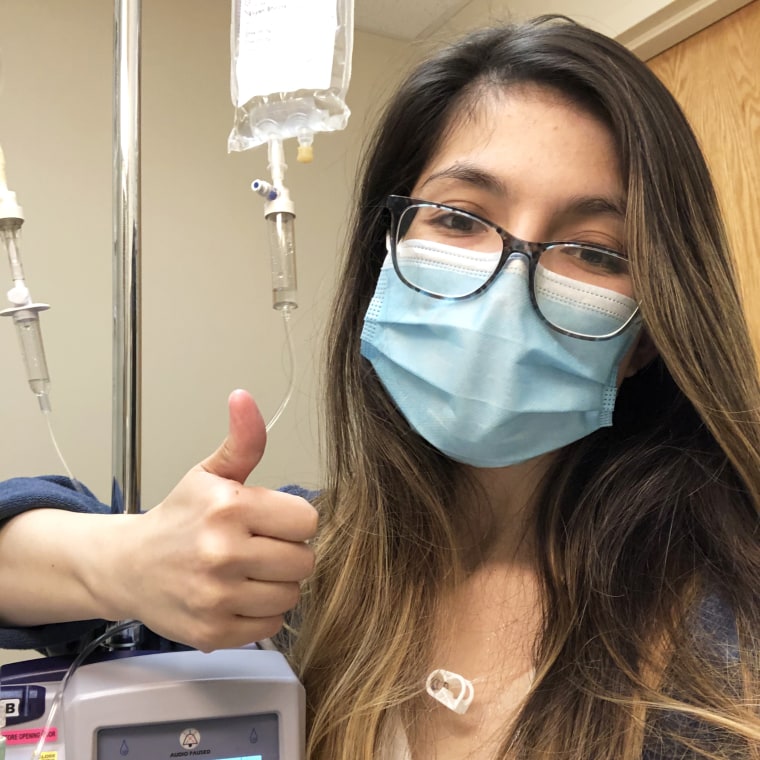
Now a physician’s assistant in Sacramento, California, she suspects she may have been able to catch it sooner with a thorough screening. But at the time, Nguyen added, she didn’t follow up with a doctor because she was busy with school and embarrassed that she may have overreacted to her symptoms.
“If I had pushed further, or if they had actually done any type of workup, I could have probably been caught at maybe a lower stage,” she said.
Why diagnosing colorectal cancer in young people is so difficult
Marshall listed several factors that can stand in the way of colorectal cancer diagnoses for young people. To start, he said, some are hesitant to mention bowel problems to friends and family, let alone doctors.
“It’s not something people want to share, and they keep it to themselves,” Marshall said. “This was true of breast cancer in the 1970s. It wasn’t polite to talk about a lump in your breast at a party.”
Young people are also more inclined to downplay their symptoms.
“A 30- to 40-year-old is busy with work, busy with raising a family, doesn’t have time for this stuff and is generally healthy. So there’s more inertia of waving off symptoms,” Marshall said.
On top of that, nearly half of adults under age 30 don’t have a primary care doctor, according to a 2018 survey.
To make matters more difficult, not all colorectal cancer cases are symptomatic. That was the case for Kathryn Sisler, whose doctor recommended a colonoscopy last year even though she was only 30, because her father had died of colorectal cancer.
Aware of that family risk, Sisler exercised five or six times a week, taught yoga, was training for a half-marathon and followed a plant-based diet.
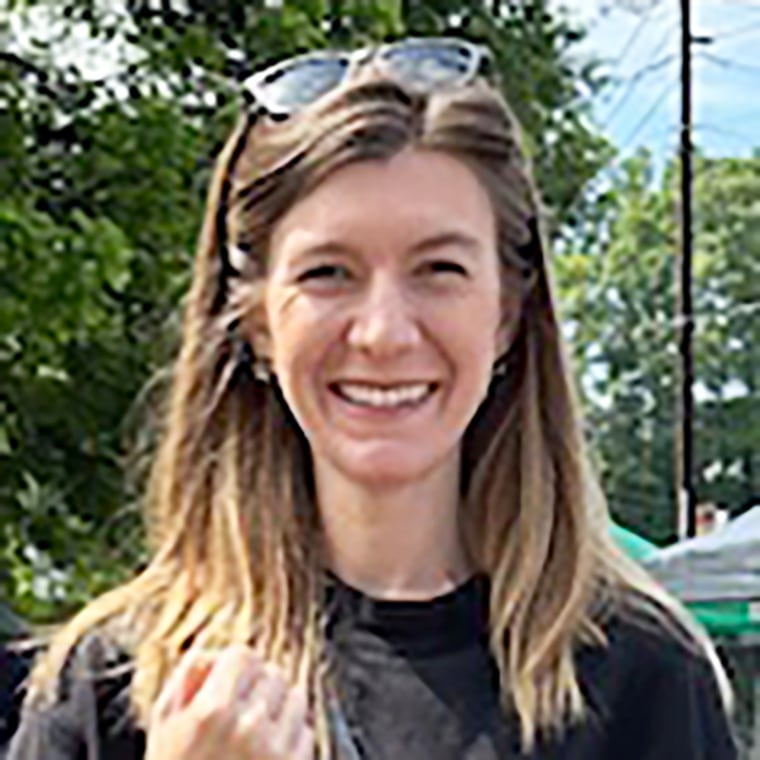
“In many ways, I am the poster child for the things you should do to put the odds in your favor,” she said.
Nevertheless, her colonoscopy in January revealed a tumor almost fully obstructing her colon. She was diagnosed with Stage 3 cancer and underwent surgery, followed by six months of chemotherapy. For a while, she had a temporary ostomy — a surgically created opening in her abdomen that allowed bodily waste to drain into a bag outside her body. That ended last month, and she now feels well enough to resume yoga and running, she said.
All the young adults interviewed required surgery to remove their tumors, though the other elements of their treatments varied. Several received chemotherapy. Nguyen’s case required radiation and chemotherapy to shrink the tumor, followed by a surgery to remove her rectum and additional chemo.
Some of those interviewed have been cancer-free for a few years but are anxiously awaiting the five-year mark, when the chance of reoccurrence falls dramatically.
Their cancer experiences have indelibly affected their lives.
Radiation put Nguyen into early menopause, so she likely cannot have biological children.
“I actually never wanted to have my own kids. I always thought of being a foster parent … but having that ability taken away from you is a lot different than just not wanting kids,” she said.
Pukylo, a sales director for an energy company in Tampa, Florida, has been cancer-free for a little more than two years. Given the known link between colorectal cancer and diets heavy in processed foods and sugar, Pukylo said he has anxiety around eating.
“Even being off of chemo for a while, or if I medicate with medical marijuana to get an appetite, I’m still scared of food,” he said.
What’s driving the rise in colorectal cancer in people under 40?
Colorectal cancer rates are highest among men, Black people and older adults. The American Cancer Society and U.S. Preventive Services Task Force both recommend that people get colonoscopies every decade starting at age 45 — a change from earlier guidelines that put the age at 50.
However, doctors don’t attribute the trend among young people to increased screening, since many younger adults are being diagnosed with advanced stages of cancer (screenings would detect the disease earlier) and many in their 20s or 30s.
Researchers and experts point to various other possible reasons, though. Since diets high in ultra-processed foods can increase the risk of colorectal cancer, one potential explanation is that people have consumed those foods more frequently, on average, over the last two decades.
Another is that children and teens are living more sedentary lifestyles, which could elevate their risk later on. Obesity, a risk factor for colorectal cancer, also now affects young people at higher rates: Whereas 33% of adults ages 20 to 44 had obesity in 2009, 41% did as of March 2020, according to one analysis.
Some researchers suspect that the gut microbiome plays a role. Diet, exercise and antibiotic use can all influence a person’s gut bacteria, but scientists don’t have a comprehensive picture of what a healthy microbiome looks like.
Doctors who treat colorectal cancer say the disease generally looks the same regardless of age, aside from two factors. First, younger adults tend to have cancer on the left side of the colon, whereas historically the tumors have been more evenly distributed. Second, young people have lower survival rates: The five-year survival rate for colorectal cancer in those 35 and under was around 49% as of 2013, compared to 64% in people older than 35, according to a study done in China.
The lower survival rates may be, in part, because younger patients tend to get diagnosed with more advanced disease — but even after controlling for that, young people still have worse outcomes, according to Dr. Scott Kopetz, deputy chair for translational research at the University of Texas MD Anderson Cancer Center’s department of gastrointestinal medical oncology.
“Something’s changed,” Kopetz said. “This is not exactly the same disease behaving exactly the same way. All of these are signs that the biology is shifting in some way that we don’t really fully understand.”
The dangers of delaying care
Deondre Williams, a father of five in Georgia, figured he’d developed hemorrhoids when he noticed blood in his stool at age 35.
“I didn’t go to the doctor regularly because I didn’t have any health concerns. I didn’t get headaches. I don’t get colds,” he said.
Many colorectal cancer symptoms — such as fatigue, weight loss, blood in the stool or a sudden change in bowel movements — can easily be confused with other ailments, Marshall said.
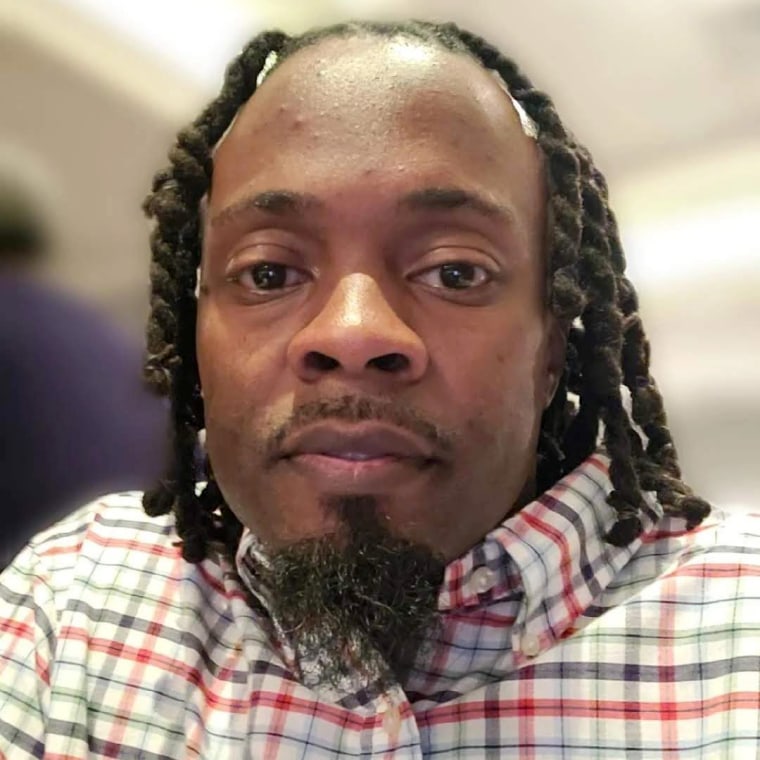
“These are not completely uncommon things to happen to people,” he said. “People have hemorrhoids. Occasionally, we’ll lose weight for unexplained reasons. But the problem really is that in this age group, no one ever thinks that it’s going to be colon cancer.”
After two weeks, Williams noticed the blood again.
“It was my wife that actually forced me to go ahead and go see the doctor,” he said.
He was diagnosed with Stage 2 colon cancer in 2017. His father had survived the same disease, but even so, Williams said, he didn’t know the signs to look for.
“You don’t have these conversations at the dinner table about your stool,” he said. “I didn’t know to have regular conversations with my dad about his situation.”
At age 20, Khalil Smith also wasn’t inclined to see a doctor for his symptoms: weight loss, stomach aches, night sweats and fatigue. Smith had just started his freshman year at West Virginia Wesleyan College, where he played football, in 2020.
“I was just oblivious to anything medically because I’m thinking, ‘I’m young. As long as I work out and stay fit, I’ll be good,’” he said.
By May of that year, Smith had lost 30 pounds. He eventually went to the ER, where doctors told him he had Stage 4 cancer. Though it was almost too advanced to operate, surgeons managed to remove three tumors.

“I was used to just pushing through being an athlete, just toughing it out,” Smith said. “I almost toughed it out to the point that I was no longer here.”
Smith estimated that he has had at least 15 operations in total. His cancer has returned twice, prompting alternating rounds of surgery and chemotherapy. However, he graduated college and now works in digital advertising. Smith is taking an immunotherapy drug to help his body recognize and destroy cancer cells. His scan in August was clear of tumors, he said.
Williams, meanwhile, has been cancer-free since 2019. He got two surgeries but elected not to do chemotherapy. He has lived with an ostomy for the past five years.
By the end of this year, an estimated 3,750 people under age 50 will have died of colorectal cancer.
New York City residents John and Mary Tara lost their son, Jonathan, to the disease early last year.
As a child, they said, Jonathan was diagnosed with ulcerative colitis — a chronic, inflammatory bowel disease that increases the risk of colorectal cancer.
Patients with colitis are advised to get a colonoscopy every year or two, but early in the pandemic, Jonathan delayed his colonoscopy by nine months because he disliked the procedure and was afraid to go to the hospital in New York City, his parents said. He eventually became unable to go to the bathroom and was rushed into surgery, where doctors discovered a tumor. The cancer spread to his brain and other major organs.
His parents now encourage young adults with symptoms to seek out care early.
“Listen to your body,” John Tara said. “If you see things like blood, if you feel pain in unusual places in your abdomen, your body, tell your family. Talk to your doctor. Have the examination.”
Source: | This article originally belongs to Nbcnews.com
